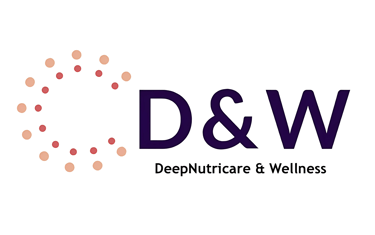Essential Nutrients for a Healthy Pregnancy
Proper nutrition during pregnancy is vital for the health of both mother and baby. This blog outlines essential nutrients—like folic acid, iron, calcium, and protein—crucial for fetal development and maternal well-being. Learn what to eat, why it matters, and how DeepNutricare & Wellness supports personalized prenatal nutrition.
PREGNANCY AND MATERNAL HEALTH
4/9/20253 min read


Pregnancy is a transformative journey that brings immense joy and responsibility. As the body undergoes significant physical and hormonal changes, the nutritional needs of a pregnant woman become crucial not only for her own well-being but also for the healthy growth and development of the baby. At DeepNutricare & Wellness, we believe that proper nutrition during pregnancy lays the foundation for a healthy future. This blog highlights the essential nutrients that every expecting mother should include in her diet for a smooth and healthy pregnancy.
1. Folic Acid (Vitamin B9)
Why it's important: Folic acid plays a critical role in the early development of the baby’s neural tube, which becomes the brain and spinal cord. It helps prevent neural tube defects (NTDs) such as spina bifida.
Recommended intake: 400-800 mcg daily before conception and during early pregnancy.
Sources: Fortified cereals, green leafy vegetables, citrus fruits, beans, and lentils.
2. Iron
Why it's important: Iron supports the increased blood volume during pregnancy and helps in the formation of hemoglobin, which carries oxygen to both mother and baby. Iron deficiency can lead to anemia, fatigue, and complications during delivery.
Recommended intake: 27 mg per day during pregnancy.
Sources: Spinach, lentils, fortified cereals, tofu, pumpkin seeds, and dried fruits.
3. Calcium
Why it's important: Calcium is essential for building the baby’s bones and teeth. It also supports healthy function of the circulatory, muscular, and nervous systems.
Recommended intake: 1000 mg per day for pregnant women.
Sources: Dairy products, fortified plant-based milks, almonds, leafy greens, and sesame seeds.
4. Vitamin D
Why it's important: Vitamin D works in conjunction with calcium to support bone health and immune function in both mother and baby. It also helps in regulating insulin levels and mood stability.
Recommended intake: 600 IU per day.
Sources: Sunlight exposure, fortified foods, egg yolks, mushrooms, and fatty fish like salmon.
5. Omega-3 Fatty Acids (DHA & EPA)
Why it's important: Omega-3 fatty acids are crucial for the baby’s brain and eye development. DHA in particular supports cognitive function and reduces the risk of preterm labor.
Recommended intake: 200-300 mg of DHA daily.
Sources: Flaxseeds, chia seeds, walnuts, algae-based supplements, and fatty fish (if non-vegetarian).
6. Protein
Why it's important: Protein is the building block of every cell in the body. During pregnancy, it supports fetal tissue growth, including the brain, and helps in the formation of the placenta.
Recommended intake: Around 75-100 grams per day depending on body weight.
Sources: Legumes, tofu, paneer, milk, yogurt, nuts, seeds, and whole grains.
7. Iodine
Why it's important: Iodine is essential for the development of the baby’s brain and nervous system. A deficiency can lead to intellectual disabilities and developmental delays.
Recommended intake: 220 mcg per day.
Sources: Iodized salt, seaweed, dairy products, and fortified foods.
8. Zinc
Why it's important: Zinc plays a vital role in cell growth, DNA production, and immune function. It supports the baby’s development and helps reduce the risk of low birth weight.
Recommended intake: 11 mg per day.
Sources: Whole grains, legumes, nuts, seeds, and dairy.
9. Magnesium
Why it's important: Magnesium helps regulate blood sugar and blood pressure levels, supports muscle function, and reduces the risk of premature labor.
Recommended intake: 350-400 mg per day.
Sources: Dark leafy greens, nuts, seeds, whole grains, and avocados.
10. Fiber
Why it's important: Fiber aids in digestion, prevents constipation (a common issue during pregnancy), and supports healthy weight management.
Recommended intake: 25-30 grams per day.
Sources: Fruits, vegetables, legumes, whole grains, and seeds.
Hydration: An Often Overlooked Essential
Staying hydrated is just as important as getting the right nutrients. Water helps in forming amniotic fluid, supports digestion, and ensures efficient nutrient transportation.
Tip: Aim for at least 8-10 glasses of water daily, and increase intake during hot weather or physical activity.
Tips for a Balanced Pregnancy Diet
Eat small, frequent meals to manage nausea and maintain energy.
Include colorful fruits and vegetables in every meal.
Choose whole foods over processed items.
Avoid excessive caffeine and completely avoid alcohol.
Consult a healthcare provider or dietitian for personalized nutrition plans.
Final Thoughts
Pregnancy nutrition is not about eating more but eating smart. Every bite should bring value to both mother and baby. By ensuring an adequate intake of essential nutrients, mothers can support their baby's development while maintaining their own health and vitality.
At DeepNutricare & Wellness, we offer personalized prenatal nutrition counseling to help expecting mothers make informed food choices for a healthy, happy pregnancy. Let us support you in nurturing the next generation with care and expertise.
Healthy moms. Healthy babies. It starts with nutrition.
DeepNutricare & Wellness
Your Trusted Health Partner
dnutricare@gmail.com
9205232987
© 2025. All rights reserved.
Follow Us
Policies
Contact us:
Get in Touch
Quick Links
